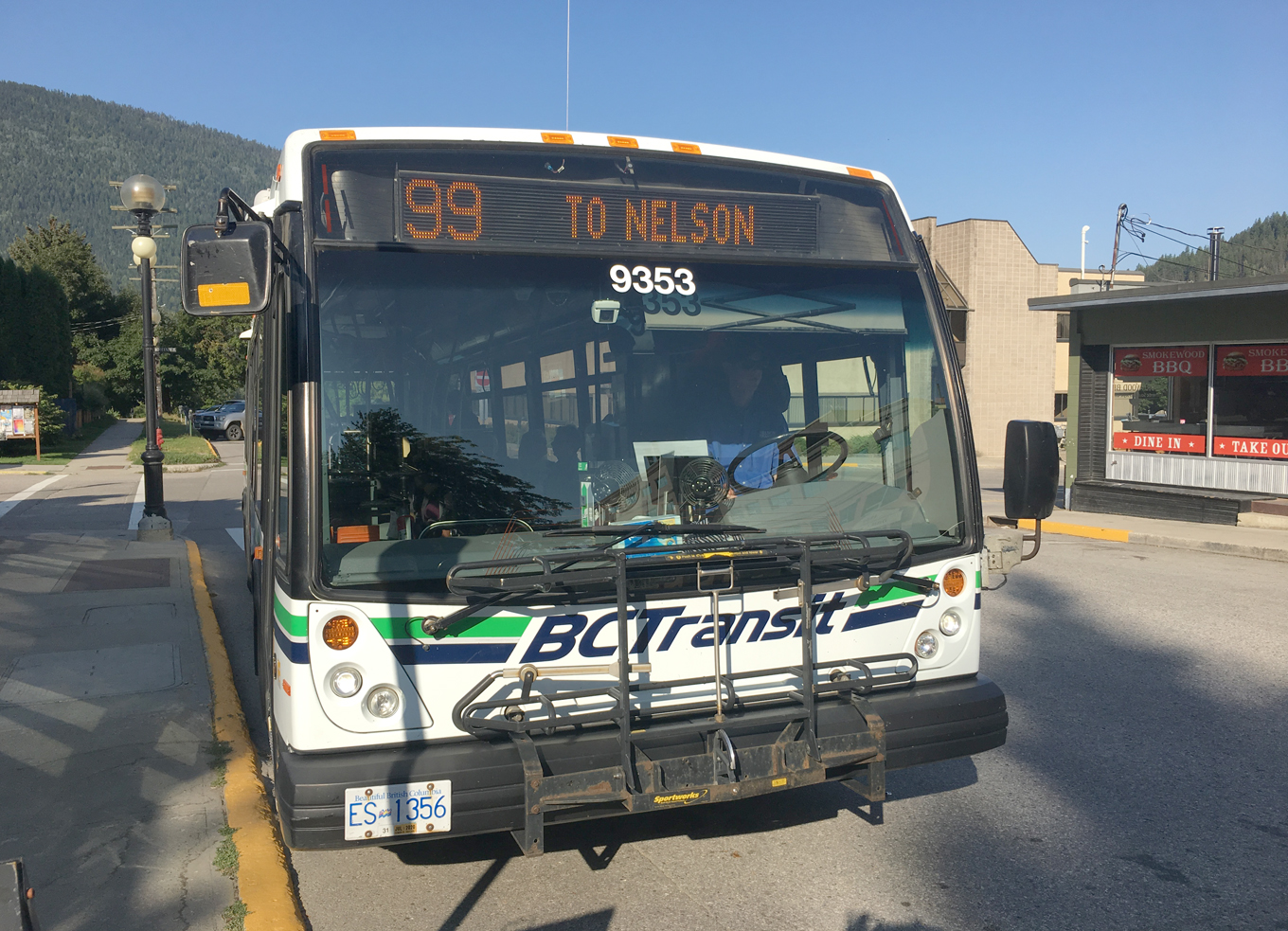Funding formula rework and fare review could be sought for local transit delivery
An effort to lobby the Province over the current transit funding formula between BC Transit and the City of Nelson has begun.
During a West Kootenay Transit Committee meeting recently, chair of the committee Rik Logtenberg — who is also a City of Nelson councillor — requested a discussion around advocating as a committee at the Union of B.C. Municipalities (UBCM) for being funded differently as a smaller government.
Elise Wren, BC Transit government relations manager, had explained that many other regions were having the same discussion as well. According to the meeting minutes, the committee discussed coming together with other smaller governments who were sharing the same concerns.
In the end, it was decided the committee would seek “meetings with the minister of Transportation at UBCM and to organize a meeting with the rural transit systems.”
Currently, the City pays an even split with BC Transit to fund local bus service.
“We’re looking for an updated funding model because the cost per capita of delivering rural transit is much higher than urban transit,” said Logtenberg. “So a 50/50 split needs to look more like 70/30.”
Funding formula
Transit service in B.C. is funded through three main sources: provincial contributions, local government contributions and passenger fares.
Provincial contributions, which include operating contributions (transfers) and amortization of deferred capital contributions, Provincial Health Authorities and the BC Bus Pass Program, accounted for 51.3 per cent of total funding.
Local governments contributed property taxation (transfers) totaling 24.8 per cent of total funding.
Revenue from passenger fares (operations), advertising, investments and fuel tax totaled 20.1 per cent of total funding.
Wren spoke on the possibility of consideration of a BC Transit fare review for the West Kootenay. The last review was in 2016 with the last increase in 2017.
Increase in transit fares was put on hold by the Provincial government during the Safe Restart program. This program ends in March 2025 at which point the fares can be reviewed and raised after this date.
RDCK staff were directed to discuss at the local board and council level — including RDKB, RDCK and City of Nelson — whether the committee would like to receive a fare review from BC Transit.
Source: BC Transit and RDCK agenda
By the numbers
- BC Transit provides services to over 130 communities across B.C. in collaboration with local government partners;
- Transports more than 38 million passengers annually;
- Serves more than 1.8 million people in B.C.;
- Operates 57 transit systems — conventional, community, custom and paratransit;
- Owns a bus fleet of over 1,100 vehicles, including 67 high-capacity, 523 heavy-duty, 187 medium-duty and 329 light-duty buses.
- Total operating expenditures in 2021/22 of $302.5 million.
- Total capital expenditures in 2021/22 of $66.8 million.
Source: BC Transit

























